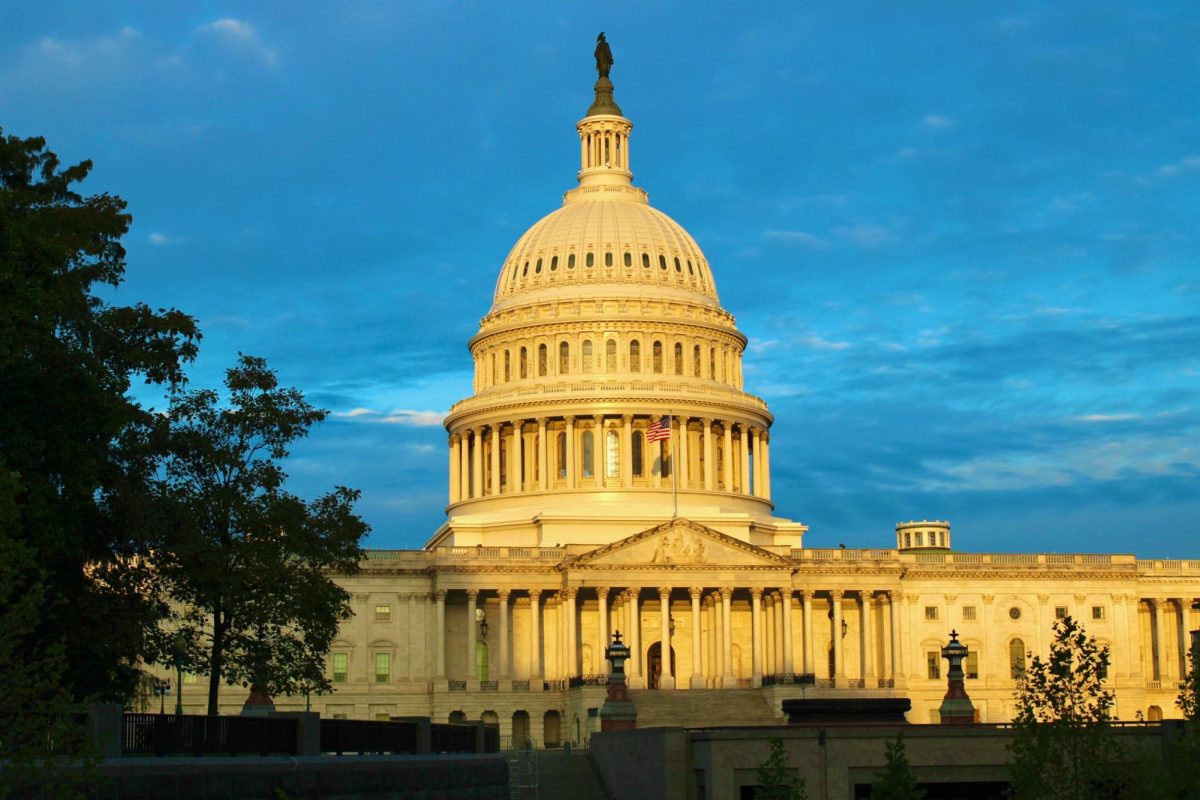Since his inauguration for a second term on Jan. 20, President Donald Trump has signed over 50 executive orders, making a swift impact on the United States.
Two executive orders are making a direct impact on universities across the country.
The orders are pressuring universities to change their policies regarding diversity, equity and inclusion (DEI) and the inclusion of transgender women in women’s sports.
DEI in danger
The first order, Ending Illegal Discrimination and Restoring Merit-Based Opportunity, was signed by Trump a day after he took office, keeping his campaign promise to end DEI programs.
“I believe that the DEI executive order issued by President Trump will be of positive benefit to students,” said Addison Werth, a senior at Fresno State. “Students deserve to be judged on the content of their character and the merit of their work, not the color of their skin or their sexual preferences.”
Trump expressed his goals to have a merit-based society after being sworn in as the 47th president of the United States.
The order is tasked with terminating all federal DEI programs, policies, mandates and activities. Attorney General Pam Bondi, Office of Management and Budget (OMB) director Russell Vought and Office of Personnel Management (OPM) director Charles Ezell are responsible for terminating the programs and revising DEI policies.
Ben Rigby, a political science major at Fresno State, shares his thoughts on the DEI ban.
“This ban is nothing more than a distraction,” Rigby said. “Politicians attack DEI and ‘wokeness’ to rile people up while ignoring real issues that affect all of us—the rising cost of living, gun violence and a broken healthcare system.”
Universities around the country have started to subtly change their policies and messages regarding DEI. For example, Rutgers University canceled a DEI conference in response to the executive order.
Additionally, The Trump Administration said they would withdraw federal funding from universities who don’t end their DEI policies in 14 days.
California State University (CSU) Chancellor Mildred García issued a statement to the CSU community regarding the new DEI policies set in place by Trump.
“The CSU welcomes and celebrates freedom of expression and diversity of thought among all of our community members,” García said. “Regardless of your viewpoint regarding these recent events, you continue to be a valued and respected member of the CSU family.”
García then detailed the CSU’s approach to the new policies.
“I write to assure you that, at this moment, the CSU will do what all great institutions – and great people – do in times of uncertainty and change,” García said. “We will turn to and uphold our core values. We will honor our purpose. We will fulfill our mission.”
Esra Hashem, the director of strategic communications at Fresno State, spoke to The Collegian regarding how Fresno State intends to move forward with DEI.
“Fresno State remains committed to fostering an inclusive and diverse community –as is reflective of our students,” Hashem said. “Our efforts in this area continue to be a core priority, and we are dedicated to ensuring that all members of our campus feel supported and valued.”
Hashem continues to explain the importance of implementing DEI policies at Fresno State.
“Our focus on diversity at Fresno State is based on the intrinsic value we see in celebrating the diverse communities that are reflected in our student body,” Hashem said.
Transgender women in women’s sports
Another one of Trump’s executive orders is also impacting universities around the nation. The order, titled Keeping Men Out Of Women’s Sports, aims to “rescind all funds from educational programs that deprive women and girls of fair athletic opportunities.”
The issue surrounding transgender athletes participating in women’s sports has gained significant traction in recent years.
A notable instance of the issue occurred in 2022 when Riley Gaines, a swimmer for the University of Kentucky, tied for fifth place with swimmer Lia Thomas, a transgender woman, in the NCAA freestyle championship. The incident inspired Gaines to become an activist and advocate for transgender women to be barred from entering women’s sports.
“President Trump’s executive order banning biological men in women’s sports is a massive victory for female athletes,” Werth said. “As a former softball player who played the sport on the collegiate level, I find it incredibly harmful for men to enter our spaces whether it be out on the field or in our locker rooms.”
Following the executive order, the NCAA changed its policies regarding transgender athletes in women’s sports. The new policy implemented by the NCAA “limits competition in women’s sports to student-athletes assigned female at birth only.”
Chancellor García shared a statement regarding the executive order.
“The CSU and our universities are committed to our responsibilities under the CSU Nondiscrimination Policy, Title IX, and state and federal law to protect against and respond to all forms of discrimination or harassment in the CSU’s educational programs and activities, including our athletics programs,” García said.
Executive orders receive pushback
There have already been lawsuits filed against The Trump Administration regarding the DEI ban. It is unclear if the executive order prohibiting transgender athletes in women’s sports will face the same consequence.
“This ban is just political theater,” Rigby said. “Politicians push these attacks to seem like they’re ‘doing something’ while ignoring real issues hurting women’s sports—lack of funding, unequal pay, and barely 5% of media coverage. If trans women had an overwhelming biological advantage, they’d be dominating, but they aren’t—fewer than 50 trans women have competed in NCAA sports over the past decade, and no openly trans woman has ever won an Olympic gold medal.”
The executive orders will last until they are deemed unlawful by a federal court or revoked by a future president.





